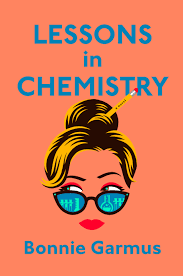Chapter 15: Unsolicited Advice
byIn the chapter titled “Unsolicited Advice,” Elizabeth Zott spends her day navigating a series of encounters that vividly illustrate the societal pressures and unsolicited opinions imposed on women, particularly those who are pregnant. Strangers seem to feel entitled to comment on her life, whether it is the woman behind her in the bank queue predicting the gender of her baby or the man in the elevator offering unsolicited parenting advice. These moments, seemingly minor, highlight the pervasive cultural norms that expect pregnant women to graciously accept unwarranted comments and advice, even when they feel intrusive or irrelevant. Elizabeth’s composed but internally frustrated reactions serve as a silent rebellion against the notion that her pregnancy somehow invites public discourse about her life choices.
Beneath these external pressures, Elizabeth is grappling with profound grief following the untimely death of her partner, Calvin Evans. Her visit to Calvin’s grave reflects her unique way of processing loss, shaped by her scientific background. Unlike conventional displays of mourning, Elizabeth approaches her grief with a methodical and analytical perspective, treating it as a problem to be solved rather than an emotion to be indulged. This juxtaposition of logic and emotion underscores the duality of her character, revealing a woman torn between societal expectations of vulnerability and her own reliance on reason as a coping mechanism.
A pivotal scene unfolds during Elizabeth’s prenatal visit with Dr. Mason, where the narrative delves deeper into her personal struggles and societal judgments. It is revealed that she and Calvin were not married at the time of his death, a detail that places her under additional scrutiny as an unwed mother. This revelation amplifies the judgment Elizabeth faces, not only for her pregnancy but also for her unconventional life choices. However, Dr. Mason’s approach offers a stark contrast to the unsolicited opinions Elizabeth encounters throughout her day. He listens attentively, respects her autonomy, and provides reassurance without imposing his own biases, creating a rare moment of support and empathy that stands out against the backdrop of societal criticism.
The chapter also explores Elizabeth’s connection to rowing, a passion she maintains as a way to honor Calvin and preserve her sense of self amidst the upheaval of her life. The rowing ergometer Calvin built becomes a symbolic link to their shared past and a physical manifestation of Elizabeth’s resilience. Rowing allows her to momentarily escape the constraints of societal expectations and focus on her own strength and determination. It serves as a reminder of the person she is beyond the labels of “pregnant woman” or “widow,” offering her a sense of control in a world that often seeks to define her by her circumstances.
Through Elizabeth’s experiences, the chapter critiques the societal tendency to reduce women, particularly pregnant women, to the roles and expectations imposed upon them. Elizabeth’s interactions with strangers reveal the pervasive nature of unsolicited judgments, while her private moments of grief and reflection emphasize the complexity of her emotions and her desire to maintain her individuality. The narrative underscores the importance of supportive relationships, such as the one she shares with Dr. Mason, and highlights the strength required to navigate a world that often undermines women’s autonomy.
Ultimately, “Unsolicited Advice” delves into themes of societal judgment, personal resilience, and the delicate balance between vulnerability and strength. Elizabeth’s journey through grief, motherhood, and societal expectations serves as a powerful commentary on the need for empathy, understanding, and the right to self-determination. Her unwavering commitment to living on her own terms, even in the face of criticism, showcases her as a multifaceted and inspiring figure who challenges norms and redefines the boundaries of identity and autonomy.


